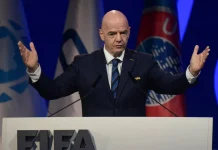It is not only an event for celebrating diversity and culture but also a reflection of the sporting spirit uniting the human race. Therefore, everyone in different corners of the world attends to cheer and experience all that their cities have for them at a time such as this.
For one thing, hosting such an event demands more than great infrastructure and resources. In fact, the social and cultural norms of the hosting country should reflect the global audience’s expectations of freedom, inclusivity, and mutual respect.
Hosting a FIFA World Cup in 2034 is a tremendous concern for Saudi Arabia as it relates to public behavior laws or PDAs. The laws are reflective of Saudi Arabian culture and religion and are thus too rigid, making them an obstacle to a free and celebratory atmosphere at the World Cup.
Familiarizing oneself with the Public Behavior Laws of Saudi Arabia
Saudi Arabia operates its government based on a system highly influenced by Islamic ideology. Public behavior is observed, and the people have laws to sustain the traditionalist nature of society. Laws, such as extreme control over displays of affection, apply in the public sector. This law was enacted in September 2019 and clearly outlines behaviors deemed unacceptable in public, including PDAs. Offenses can be punished with fines or imprisonment
For instance, in most countries embracing, kissing, or even hand-holding is a sign of happiness and love. Such practices are under fines, imprisonment, or public admonition. For LGBTQ+ couples, it is very dangerous since same-sex relationships are illegal and attract punishment in Saudi law.
Consequences for the Fans and Visitors
Millions of fans with different cultures visit the World Cup, and out of them most do not know the public behavior rules of Saudi Arabia. This can lead unintentionally to breaking the law, and visitors may feel uncomfortable.
Fear of Punishment
This will enclose the crowd. The public might consider that if a group hugging or kissing the player when they are celebrating a score is not acceptable, they will get caught when displaying affection so the thrill and spontaneity that relates to the World Cup is dead. People who display affection in public can be fined between 50 to 6,000 Saudi riyals, which is approximately between $13 and $1,600, depending on the severity of the offense124.
LGBTQ+ Community
The FIFA World Cup winners have been very inclusive and have been aggressively fighting discrimination. However, the laws in Saudi Arabia against LGBTQ+ make the country an undesirable destination for fans, players, and officials who fall into this category. Inclusivity is a core principle of the ideology of FIFA, and such exclusion could alienate a significant proportion of the football community.
Global Perception of Inclusivity
This emphasis by FIFA on the inclusion aspect in recent years as one of its core values of football makes it conflicting to hold the World Cup in a country whose public behavior rules, in particular those restricting personal freedom, are so tight.
Reputational Risks for FIFA
FIFA has been criticized for awarding the 2022 World Cup to Qatar based on human rights abuse and stringent legal policies. The same thing happening with Saudi Arabia may further intensify criticism because people may question the organization’s commitment to its cause.
Likelihood of Boycott
Countries and human rights groups can protest the event by boycotting it, which may result in lesser viewership, problems with sponsorship deals, and a lack of interest among people worldwide about the event.
Atmosphere of the Tournament
The FIFA World Cup is a tournament associated with much energy and vitality. The fans take to the streets for street celebrations, cultural exchange, and spontaneous displays of joy. This could be dampened by the Saudi public behavior rules.
Fan Experiences Are Limited
This would be due to a fear of litigation cases for violating some of the local norms by getting deeply involved in celebrations. Such an apprehension would result in less enthusiastic fans and a boring event.
Regulations on Celebrations
Public concerts, street parades, and other gatherings are usually part of the World Cup. In Saudi Arabia, these events may be highly regulated, limiting the range of activities and making the event less attractive to the international audience.
Compatibility with Global Values
The World Cup is a celebration of universal values, including unity and joy. The public behavior rules of Saudi Arabia appear to be in direct contradiction with the very ethos of inclusivity and cultural exchange that defines the tournament.
Cultural Imposition on Visitors
Expecting international visitors to be completely assimilated with Saudi Arabia’s norms poses the risk of cultural imposition. Fans might view such limitations as violating their freedom of expression and, thus, only nurture resentment and cultural conflicts.
Freedom Personal
Players who have followed their wives or even families will experience hassle with Saudi Arabia’s general laws, which brings unnecessary stress and distraction that one would wish to avoid in this tournament. PDA is among the 19 offenses under the Public Decency Law, along with immodest dressing and taking pictures without someone’s consent.
Lost Opportunities for Cultural Exchange
The FIFA World Cup is a cultural exchange and mutual understanding. The limitation of public conduct in the country hosting such an event limits the expression of culture and experience exchange.
Conclusion
Although Saudi Arabia has the financial muscle and the infrastructure to host a mega event, its public behavior rules, especially on displays of public affection, raise many red flags about its suitability in hosting the FIFA World Cup in 2034. These rules go against the very inclusive and celebratory nature of the tournament and risk alienating fans, players, and stakeholders. The FIFA World Cup is not just a football competition; it’s a grand festival of unity, culture, and diversity across the world. A country whose laws repress the values defied would not be doing justice to it.











